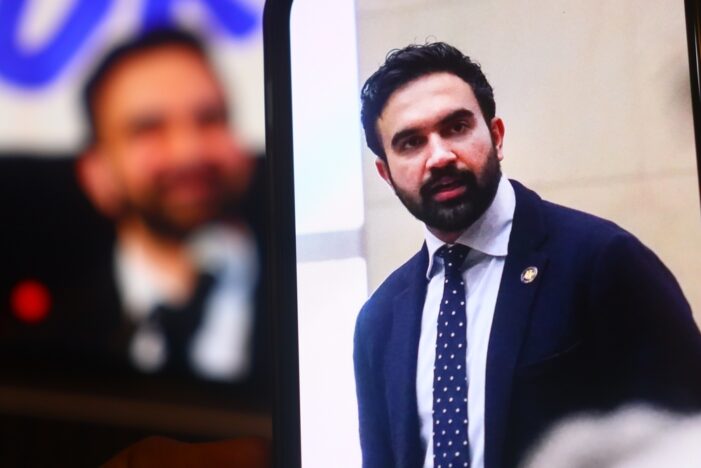By: Esther Claudette Gittens | Editorial credit: Photo Agency / Shutterstock.com
As Zohran Mamdani emerges as the Democratic nominee for New York City mayor, his campaign’s progressive momentum has collided with mounting concerns around corruption, privilege, and moral credibility. With criticisms emerging over his personal actions and public posture, this article offers a professional analysis of how Mamdani confronts these ethical challenges—and why they matter for voters.
- The Rent-Stabilized Apartment Controversy
At the center of the backlash lies Mamdani’s continued residency in a $2,300/month rent-stabilized apartment in Astoria—despite earning a $142,000 assembly salary and coming from an affluent family. Critics argue this practice undermines the housing system designed to assist low-income New Yorkers.
Former Governor Cuomo proposed a measure dubbed “Zohran’s Law”, aimed at restricting such units to those with incomes within affordable thresholds. Although Mamdani maintains he earned the apartment before his earnings rose and initially didn’t know it was rent-regulated—he has pledged to vacate the housing to address the optics of entitlement.
Implication: The irony of a self-styled democratic socialist benefiting from the system he argues should be dismantled raises real concerns about principled leadership vs. personal expediency.
- Symbolic Missteps and Community Backlash
a. Controversy Over “Globalize the Intifada” Reference
Mamdani incurred serious criticism after comparisons to war imagery and ambiguous references to phrases like “globalize the intifada,” which some interpret as incendiary or antisemitic.
b. Italian-American Heritage Groups Protest
After a resurfaced 2020 tweet showing Mamdani flipping off a Columbus statue and opposing public commemorations of Columbus, Italian-American organizations accused him of cultural intolerance. Mamdani’s limited response only intensified the perception of exclusionary rhetoric.
c. Identity Politics Concerns
Critics have accused Mamdani of using identity strategically—some argue he emphasizes narratives such as immigrant or Muslim identity for political gift rather than genuine engagement. One Indian-American voter notably criticized his approach as frustrating and misleading.
Implication: These controversies highlight concerns about divisive symbolism and authenticity, potentially undermining broader coalition-building.
- Defense Against Accusations of Corruption
Mamdani has presented himself as untouched by the scandals surrounding other political figures. As he stated during the campaign:
“I’m proud I don’t have Andrew Cuomo’s experience of corruption, scandal and disgrace.”
He also frames his campaign as a challenge to a corrupt fundraising system, calling out the influence of billionaires and signaling a push for greater financial transparency.
Implication: While positioning himself as a moral alternative, Mamdani faces the test of proving that distinction in practice—not just in rhetoric.
- The Integrity Gap and Political Credibility
Despite distancing himself from legacy corruption, Mamdani’s personal choices—such as benefiting from housing privilege—rust the veneer of moral leadership. Observers argue that:
- Privileges large enough to eclipse the message: Critics label his housing choice as a classist contradiction to his equitable platform
- Effective empathy vs. insular lifestyle: Voters question whether he deeply understands the struggles of the most vulnerable or only champions them from afar.
- The importance of symbolic consistency: For a campaign centered on social transformation, symbolic congruence matters. Critics say deviations, even small, are magnified.
Conclusion: Morality, Trust, and the Road Ahead
Zohran Mamdani’s campaign rests on a compelling progressive vision—but moral missteps risk eroding voter trust. Key takeaways include:
| Strengths | Risks & Ethical Misalignments |
|---|---|
| Champion of equitable policies | Living in housing meant for vulnerable communities |
| Seeks to unearth systemic corruption | Controversial statements raising concerns of exclusion |
| Distinct from corrupt political legacy | Symbolic dissonance threatening credibility |
In an era where voter cynicism runs deep, Mamdani’s trajectory now hinges on his response to these integrity challenges. Transparency, humility, and consistent alignment between values and actions will determine whether he is seen as a reformer—or just another insider who talks the talk.

